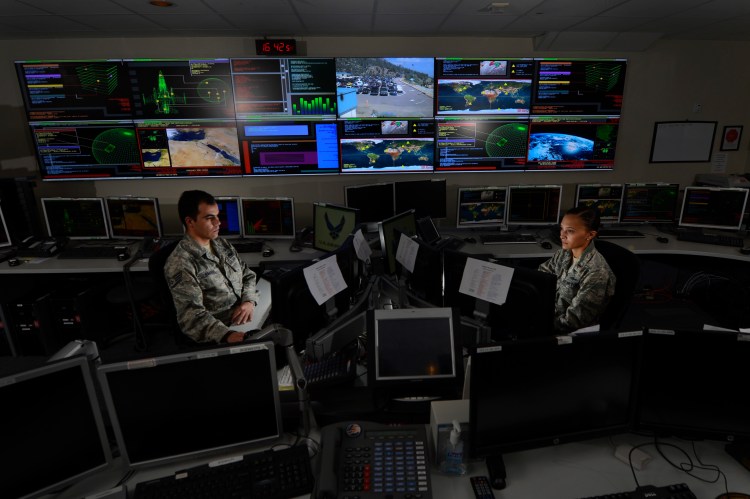|
|

|
Building a digital Space Force.
The U.S. Space Force is set to intake 2,400 new members this month. And with that, the force is planning ahead to set a culture and foundation of digital fluency in its new personnel. It might seem obvious that being tech-savvy would go hand-in-hand with Space Force's mission, but the leadership wants everyone on board with the idea. Space “is fundamentally dependent on technology and innovation,” Maj. Gen. Kim Crider said last week. “We are realizing our full potential as a space-based service ... when we can streamline our processes and operations through digital capabilities.” Jackson Barnett has the story.
|
|
|
A Message From AWS Educate
With over 1,500 institutions and hundreds of thousands of students who use AWS Educate, we wanted to take you on a trip around the world and highlight how students are learning and innovating with the cloud.
Learn more.
|
|
|
FBI's digital security guide for local police
The FBI launched a new cybersecurity guide for local police on how to avoid surveillance and harassment online amid ongoing protests against police brutality throughout the U.S. The instructions include a range of advisories for smaller police agencies, ranging from ways to avoid harassment on Facebook to the best ways to remove personal information from publicly available databases. The 354-page document, titled “Digital Exhaust Opt Out Guide,” was released publicly in June as part of the BlueLeaks data dump, a trove of law enforcement materials made public by transparency activists calling themselves Distributed Denial of Secrets. Jeff Stone has more.
|
|
|
|
|
Education Department reducing cloud skills needed through consolidation
Multi-cloud environments are trendy across the federal government currently. But an often forgotten-about part of the multi-cloud equation is the requisite host of skillsets personnel must have to be proficient in such an environment. Education CIO Jason Gray said his department has been working to consolidate some of its cloud sprawl, which has helped simplify things for those managing the environment. “For a future state of where we’re going, I would love for it to be simpler because otherwise, you’re having to make sure that people get trained on this skillset and on that skillset," Gray said during a recent SNG Live: Cloud Smart event. Dave Nyczepir has this one.
|
|
|
|
|
Coming soon: A one-stop-shop for information about DOD’s online courses
DOD is working to create a searchable catalog of every online course available across the military. The Enterprise Course Catalog builds on years of wanting to leverage enterprise IT to improve the data management of online education for DOD civilians and uniformed personnel. “This is not just about identifying ways to have more effective business processes, it is truly about a new paradigm of learning,” Sae Schatz, director of the DOD’s Advanced Distributed Learning Initiative, said about how the DOD is approaching learning. More from Jackson.
|
|
|
|
|
UT Austin launches $20M machine learning research institute
The University of Texas, Austin announced Wednesday it will create a new national institute focused on machine learning research. Funded by a $20 million grant from the National Science Foundation, the institute will support researchers at UT Austin and higher education institutions across the country, including the University of Washington and Kansas’ Wichita State University, to develop new algorithms that will advance artificial intelligence technology and assist industries like transportation and health care in making predictions in complex environments. Betsy Foresman has more.
|
|
|
|
|
Job of the Day
Chief Data Officer |Department of Homeland Security
The Chief Data Officer (CDO) serves as the principal adviser to the CIO for the DHS enterprise data management program. The CDO is responsible for performing and supervising work across the DHS enterprise to address the Department's most complex and consequential information and data challenges. The CDO performs a central organizing function in defining and shaping a DHS data culture that makes all DHS data discoverable, accessible, and decision enabling through secure, modernized systems and standards. The CDO reports to the Deputy Chief Information Officer. See this job and others here.
|
|
|
|
|
|
|